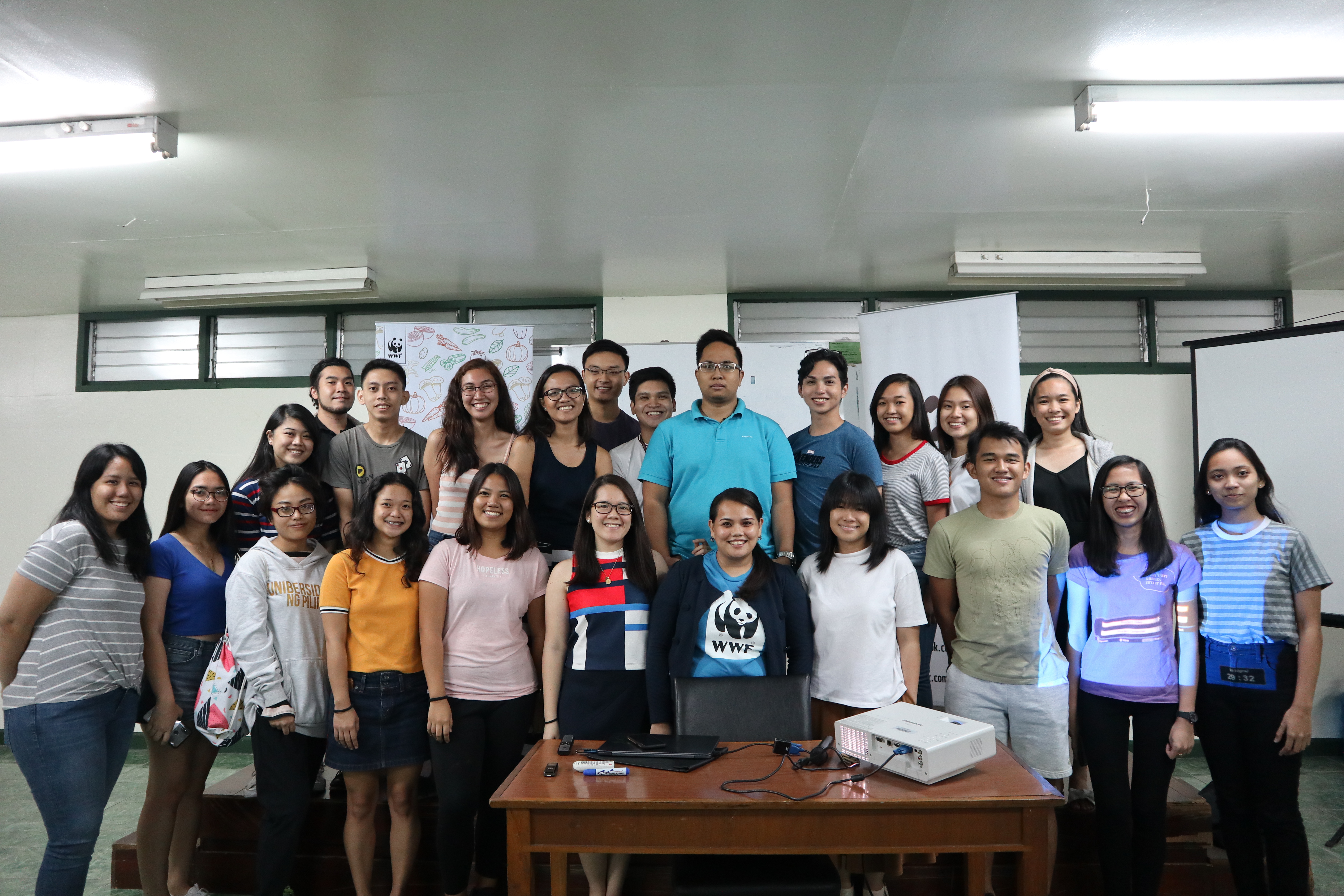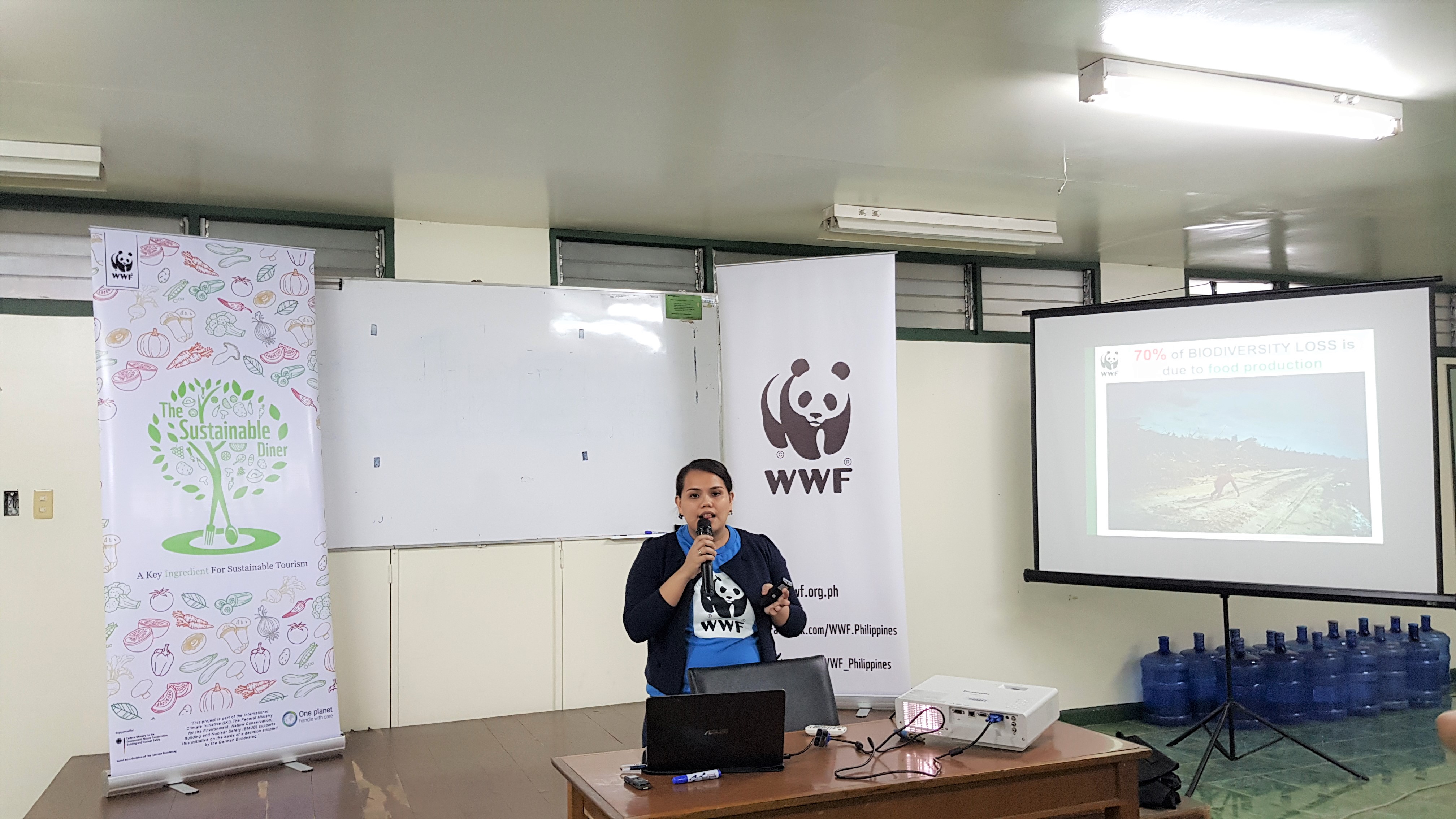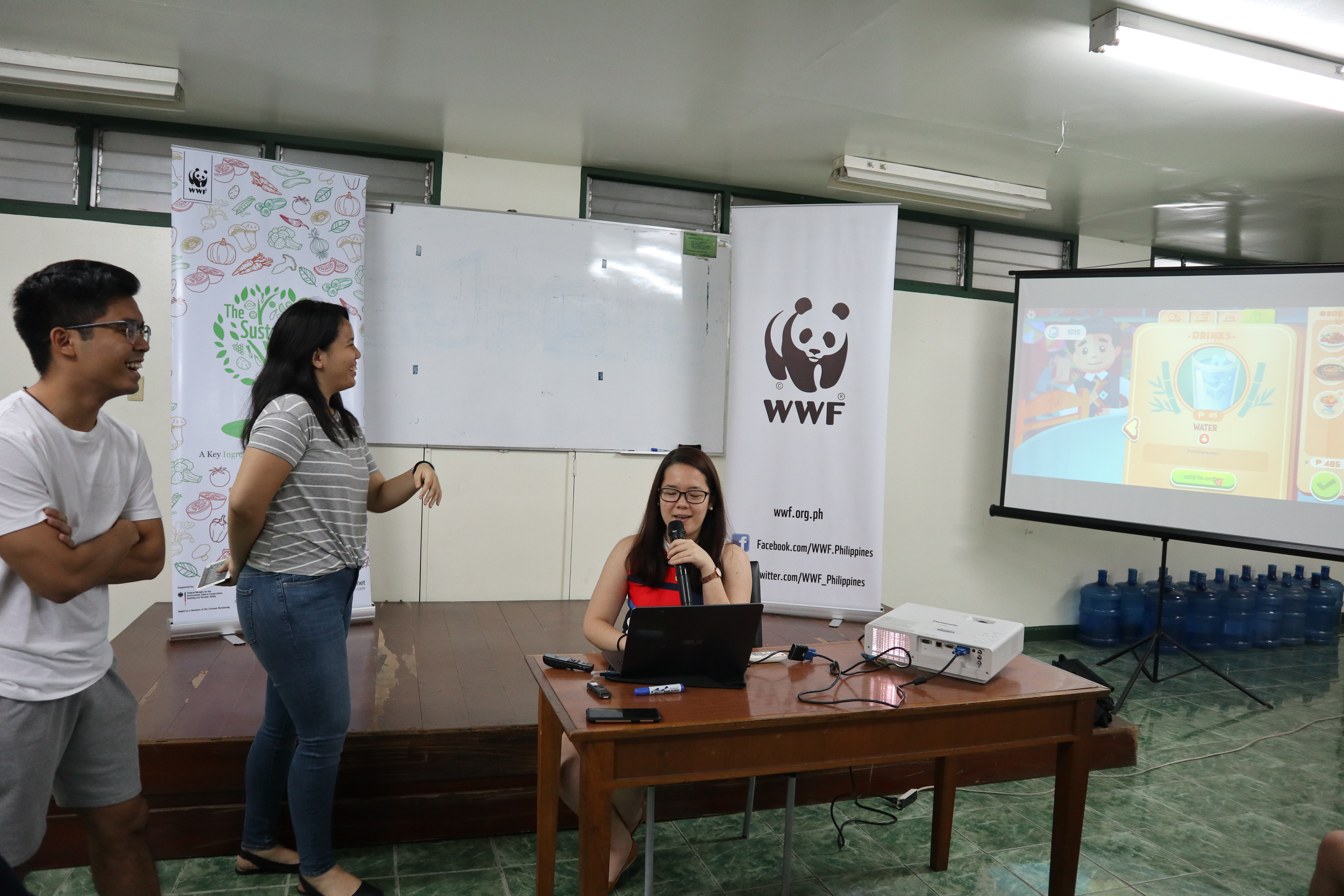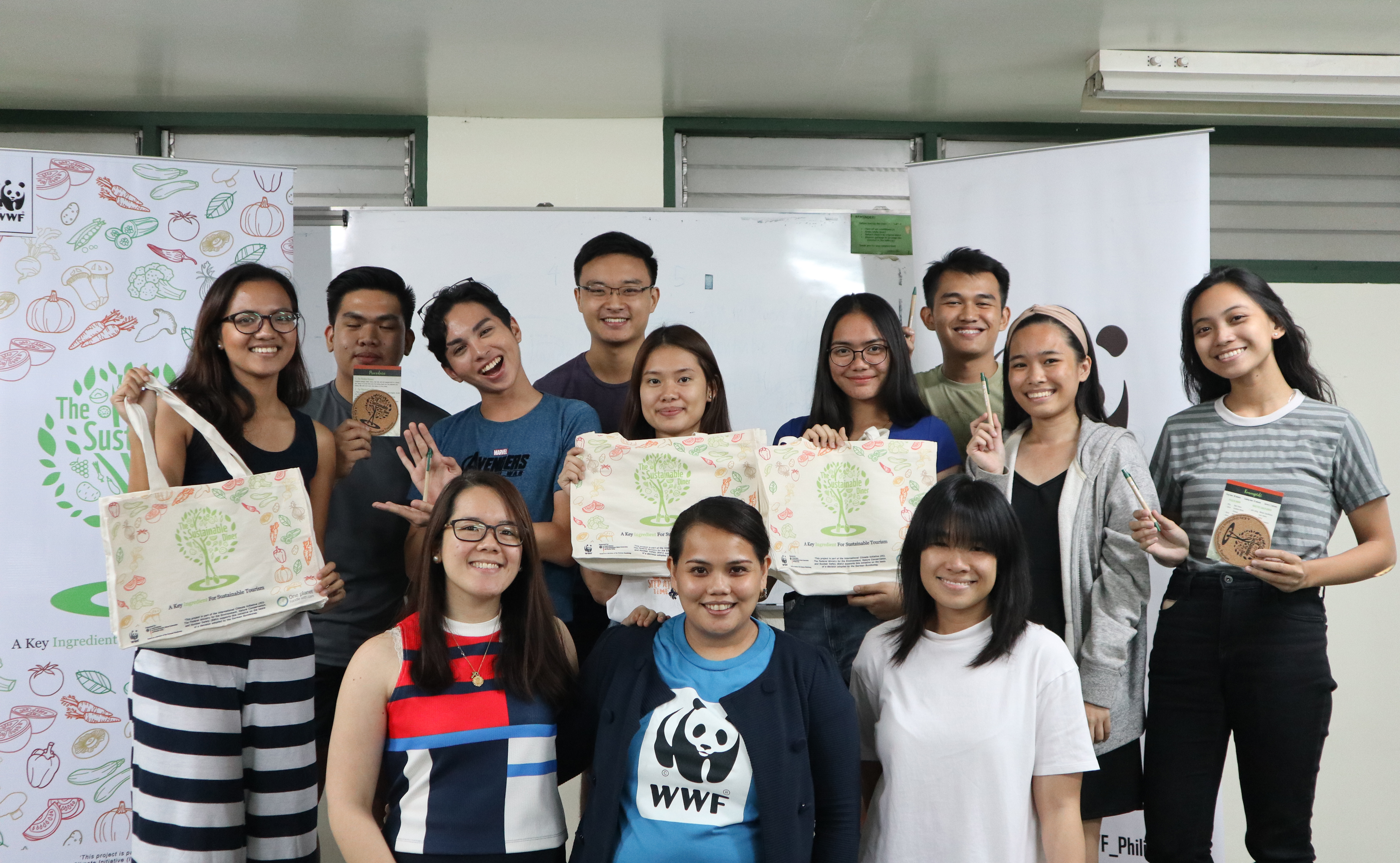The Sustainable Diner at the UP Club for the Environment and Tourism's Leftover: Environmental Impacts of our Dining Choices Event
October 2018

The Sustainable Diner project team of WWF-Philippines together with students from the UP Club for the Environment and Tourism. Photo © Gabriel Villalon / WWF-Philippines
Last October 25, 2018, World Wide Fund for Nature (WWF) Philippines’ The Sustainable Diner: A Key Ingredient for Sustainable Tourism project was invited to speak at Leftover: Environmental Impact of our Dining Choices at the University of the Philippines School of Labor and Industrial Relations. The particular talk, which focused on sustainable dining as a means of promoting sustainable consumption and production, was a part of Usbong - a week-long program meant to develop student potential and competency in areas such as advocacy marketing in the digital age, responsible consumerism, and environmental protection. The program was implemented by the UP Club for the Environment and Tourism, a university-wide organization that commits itself to the integration of environmental protection with tourism through projects and activities that would unify and increase awareness among its members.

Melody Melo-Rijk, WWF-Philippines’ Project Manager of Sustainable Consumption and Production in the Philippines, was invited as the resource speaker for the event. She opened the session by introducing the mandate of WWF-Philippines as well as its different practices, which includes the food sector. “The Sustainable Diner project operates under WWF’s Global Food Practice and we share the same three goals: sustainable production, sustainable consumption, and eliminating waste,” says Melo-Rijk. “In terms of the food industry, when we talk about sustainability, we refer to how our resources are used to produce food and food-related services, that these processes do not compromise environmental health and the quality of life of future generations”.

Lorayne Roque, The Sustainable Diner project’s Sustainable Dining Specialist, assists students in playing the Balay Kawayan game. Photo © Gabriel Villalon / WWF-Philippines
Melo-Rijk also talked about the importance of the tourism industry in ensuring that sustainable consumption and production in the food industry is properly integrated and implemented. “Tourism is an industry where environmental protection should be placed at the core. And when we talk about local tourism, food will always be a very important element. Food is, after all, one of the main reasons domestic and international tourists visit the different islands of the Philippines,” says Melo-Rijk. “You, as tourism students, have the biggest opportunity to spread the word in your future professions. We need to work together to increase the value of the environment and to spur mindset and behavior changes in the tourism industry.”
During the talk, Lorayne Roque, the project’s Sustainable Consumer Specialist, also shared with the audience the Balay Kawayan game, a restaurant simulation game which issues a carbon footprint receipt depending on the food and action choices a diner makes. A short assisted demo was done with volunteers from the organization. A question-and-answer game was also conducted to ensure that the students were able to take note of the important facts and highlights related to sustainability in the food service industry.

WWF-Philippines together with the winners from the short question and answer segment, showing off their merchandise from The Sustainable Diner project. Photo © Gabriel Villalon / WWF-Philippines
The participation of The Sustainable Diner project in Leftover: Environmental Impact of our Dining Choices is a part of the project’s planned campus tours, slated to run until 2020. In order for us to successfully change mindsets and dining habits, we recognize that consistent engagement with the Filipino youth is very important. It is only with the support of the Filipino youth that eco-friendly campaigns like The Sustainable Diner can find ways to succeed in promoting sustainable consumption and production in the entire country.
The Sustainable Diner project, under WWF-Philippines’ Sustainable Consumption and Production, is part of the International Climate Initiative (IKI). The Federal Ministry for the Environment, Nature Conservation, and Nuclear Safety (BMU) supports this initiative on the basis of a decision adopted by the German Bundestag.
